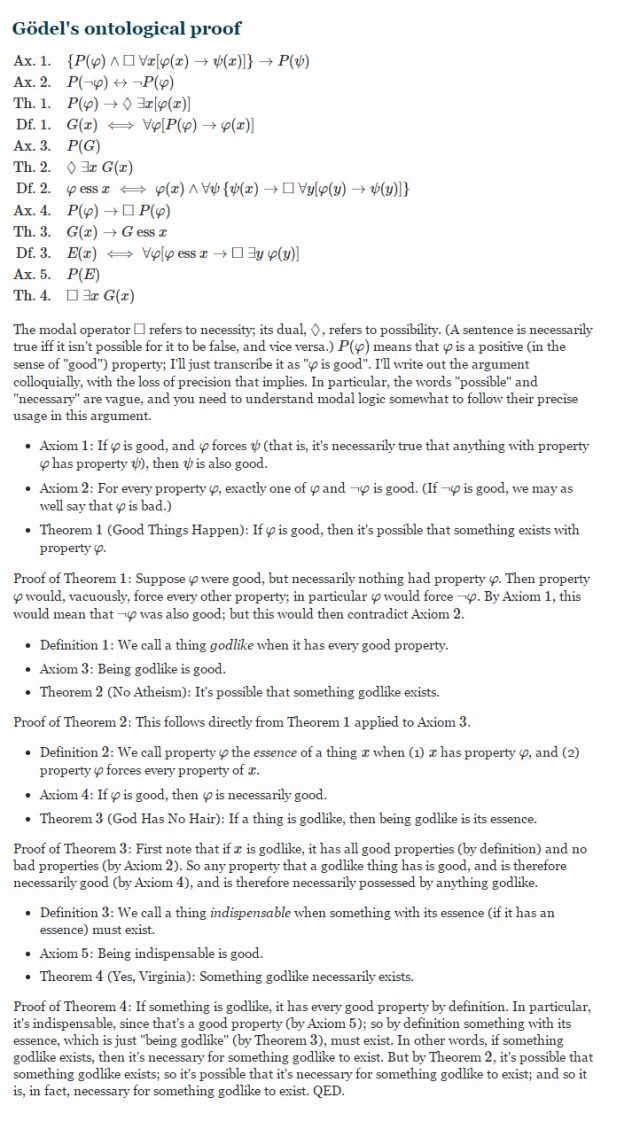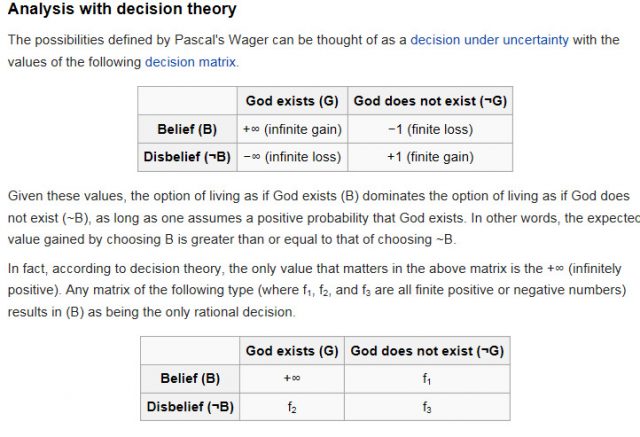Basic history and discussion from the working class perspective of issues in theology from ancient pre-Socratic to medieval and modern philosophies and theologies of religion, language, science, existentialism, and pragmatism. The emphasis is on how dominant theologies have and do affect the working classes throughout history because this is the group of people who suffer the worst and adverse affects of whatever are the dominant philosophical and theological ideals of any given age and who usually are the least knowledgeable about the nature of the ideals and why they are dominant. Theology is studied as a branch of philosophy and not as religious theology though the subject of comparative religion and the nature of God will also be discussed.

Pascal’s Wager written in decision theory

St. Anselm’s Ontological Proof
St. Anselm, Archbishop of Cantebury (1033-1109), is the formal originator of the ontological argument, though it existed implicitly in most of ancient philosophy, in his book Proslogium (English translation, “Discourse on the Existence of God”). It is translated and summarized in the following standard form:
- It is a conceptual truth (or, so to speak, true by definition) that God is a being than which none greater can be imagined (that is, the greatest possible being that can be imagined).
God exists as an idea in the mind.
A being that exists as an idea in the mind and in reality is, other things being equal, greater than a being that exists only as an idea in the mind. Thus, if God exists only as an idea in the mind, then we can imagine something that is greater than God (that is, a greatest possible being that does exist).
But we cannot imagine something that is greater than God (for it is a contradiction to suppose that we can imagine a being greater than the greatest possible being that can be imagined.)
Therefore, God exists.
“Sand Pebbles” music courtesy the film, Sand Pebbles, music by Jerry Goldsmith.
